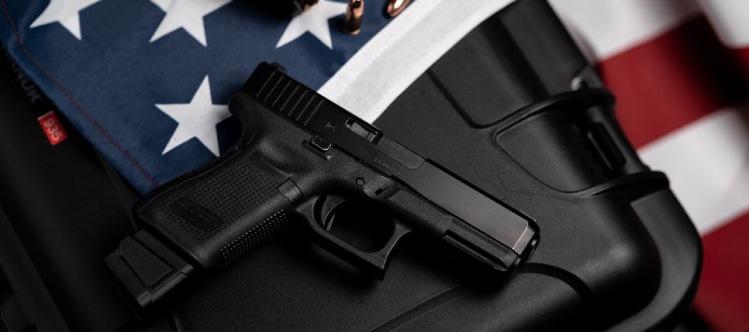Owning firearms is more than a hobby—it’s an investment. Yet many gun owners don’t realize that standard homeowners or renters policies may leave gaps. Before you sign on the dotted line, here are the key questions you should ask your insurance agent—especially when considering specialized firearm property coverage through Delta Shield.
1. What coverage types are included (or even available)?
Ask your agent to walk through exactly what the policy will cover. Key forms of coverage include:
-
Comprehensive property coverage: Protects not just the firearm itself, but accessories such as scopes, suppressors, extra barrels, mounts, clips, bows, arrows, safes, etc.
-
Theft, fire, and flood protection: Loss or damage due to burglary, fire, or flooding are typical covered perils.
-
Government seizure / confiscation: If a firearm or accessory becomes illegal, is banned, or is confiscated by the government, will the policy reimburse you?
-
Replacement cost versus actual cash value: Does the policy pay you enough to replace the item, or just the amount of the item including its depreciated value?
-
On-premises and off-premises coverage: Is the policy limited to losses at home, or does it extend to your firearms when traveling, at a range, or in transit?
2. What are the exclusions?
Every policy has things it won’t cover. Be sure to ask:
-
Damage from improper handling, negligence, or wear & tear: Some policies exclude losses that result from misuse, lack of maintenance, or gradual deterioration.
-
Losses while in transit beyond what’s allowed: If your firearm is stolen while traveling, is there a sub-limit or exclusion?
-
Certain types of property or weapons: Some policies may exclude assault-style or full-auto weapons, or other regulated accessories—ask if there are restrictions on what types of firearms or accessories are eligible.
3. What are the limits and how are they applied?
Knowing your limits is vital to ensure you’re not underinsured. Ask these:
-
Coverage caps (per item and aggregate): What is the maximum the insurer will pay per firearm or accessory, and the total maximum for your entire collection?
-
Unscheduled vs scheduled coverage: Does the policy let you cover “unscheduled property” (for items below a certain value, typically without listing them individually)? Delta Shield allows for 100% privacy on unscheduled property under $5,000.
-
Deductibles: Does the policy have a deductible for claims (e.g., $250), or is it deductible-free?
4. What documentation or proof will I need?
A strong policy may require you to maintain certain records or take preventive measures. Ask:
-
Do I need to present a detailed inventory of my firearms (make, model, serial numbers, photos)?
-
Do I need professional appraisals for high-value firearms?
-
Are there requirements for storage (e.g. locked safe, alarms, secure storage when away from home)?
-
Are there maintenance or inspection requirements?
5. What are the costs (premiums) and how are they determined?
Finally, cost is an important part of the decision:
-
What is the base premium, and what factors increase it (collection value, location, storage practices, crime rate)?
-
Are there optional endorsements or riders I can add (e.g. extending off-premises coverage, increasing sub-limits)?
-
What happens to premiums at renewal—are there escalators or rate increases built in?
-
Are there discounts for safety features (vaults, alarm systems, secure storage)?
6. Are there additional things I should watch out for (risks / pitfalls)?
-
Be careful about underestimating your collection’s value, especially for accessories and rare items
-
Make sure you understand how losses are valued (replacement cost vs actual cash value)
-
Ensure the policy covers travel and usage—like taking guns to the range or competitions
-
Check for policy renewability, cancellation rights, and conditions that might void coverage
Sample Questions You Can Present to an Agent
-
“Can you explain how this policy handles firearms?"
-
“If I lose a firearm while traveling, is that covered, and is there a different deductible or limit?”
-
“Do I need to appraise rare firearms to get them scheduled, or is the unscheduled coverage sufficient up to a threshold?”
-
“What proof will I need to file a claim—do you require photos, appraisals, serial numbers, receipts?”
-
“How do premiums increase on renewal, and do you offer discounts for secure storage?”
-
“How will this policy handle replacing my firearm if it gets seized or confiscated by a governmental entity?"
Conclusion
Getting the right firearm property insurance coverage ensures that your firearms and their accessories are property insured for the risks they face.
But the coverage is only as good as the policy details. By asking the right questions about coverage types, exclusions, limits, documentation, and coordination with your existing insurance, you can protect your collection with confidence. Be sure to get all the answers in writing, review the contract closely, and maintain comprehensive records for your collection.
Ensure that you are insured correctly.


.png?width=64&height=64&name=jon-circle-1%20(1).png)

